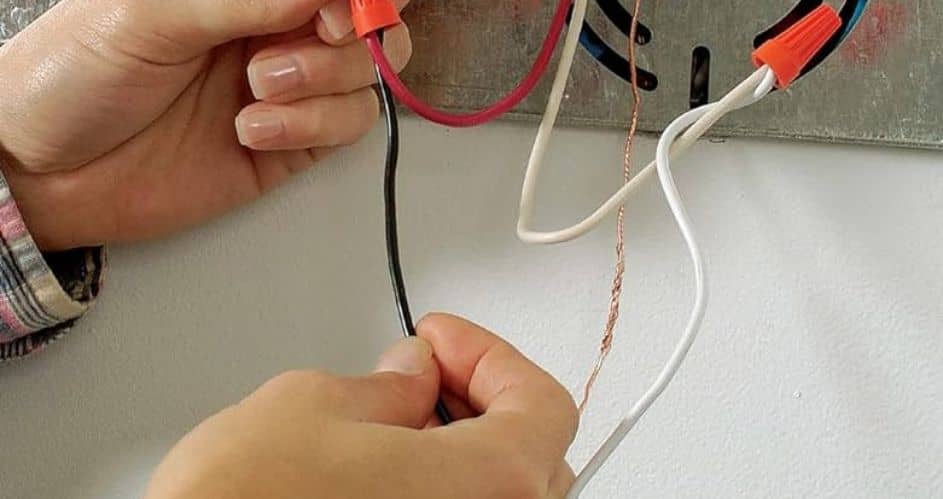
In the realm of homeownership, few scenarios are as concerning as a power outage. Whether it’s caused by severe weather, equipment failure, or other unforeseen circumstances, being left in the dark can disrupt daily life and compromise safety.
For many homeowners, investing in a generator provides peace of mind by ensuring backup power during outages. However, the interaction between generators and old home wiring, including knob-and-tube wiring replacement, presents unique challenges that require careful consideration.
In this comprehensive guide, we’ll delve into the complexities of connecting generators to old home wiring, exploring potential risks, best practices, and solutions for homeowners concerned with power outages.
Understanding Old Home Wiring
Old home wiring, often characterized by knob-and-tube wiring, presents a host of challenges when it comes to connecting generators. These outdated wiring systems may suffer from degradation, insulation breakdown, and safety hazards over time, posing risks when interfacing with modern electrical equipment.
Therefore, a thorough understanding of old home wiring, including the need for knob and tube wiring replacement, is essential for homeowners considering generator installation. Regular inspection and maintenance are crucial to ensure the safety and reliability of these aging electrical systems.
How Generators Work
Before delving into the intricacies of connecting generators to old home wiring, it’s essential to understand how generators operate. Generators come in various types, including portable, standby, and inverter models, each with its unique features and capabilities.
Portable generators offer flexibility and convenience, while standby generators provide seamless backup power during outages. Inverter generators are known for their quiet operation and fuel efficiency. Understanding the differences between these generator types can help homeowners choose the best option for their needs.
Challenges of Connecting Generators to Old Wiring
Connecting generators to old home wiring presents several challenges that homeowners must address to ensure safe and reliable operation. Compatibility issues, voltage fluctuations, power surges, and grounding problems are common concerns that may arise when interfacing generators with outdated electrical systems.
Proper installation and wiring modifications, including knob-and-tube wiring replacement, are essential to mitigate these challenges and minimize the risk of electrical hazards. Consulting with a qualified electrician is recommended to ensure that generator installation meets safety standards and local building codes.
Potential Risks and Precautions
Identifying potential risks associated with connecting generators to old home wiring is crucial for homeowners concerned with power outages. Voltage irregularities, overloaded circuits, and improper grounding can pose safety hazards and damage electrical equipment.
Therefore, homeowners must take appropriate precautions to mitigate these risks, such as installing surge protection devices, using proper extension cords, and avoiding overloading circuits. Regular maintenance and adherence to safety guidelines are essential to ensure safe and reliable generator operation.
Solutions and Best Practices
Navigating the complexities of connecting generators to old home wiring requires a combination of solutions and best practices, including knob-and-tube wiring replacement.
Homeowners with old wiring should consult with a qualified electrician to assess compatibility and identify necessary wiring modifications before installing a generator.
Upgrading old wiring, adding dedicated circuits, and installing surge protection devices are common solutions to ensure safe and reliable generator operation.
Additionally, homeowners should familiarize themselves with generator features and accessories that can help mitigate compatibility issues and improve performance.
Generator Maintenance for Old Home Wiring
Regular maintenance is essential to ensure optimal performance of both the generator and old home wiring. Cleaning, testing, and lubricating generator components are essential tasks that should be performed regularly to prevent issues and ensure compatibility with old wiring systems.
Homeowners should also inspect and maintain old wiring to identify potential problems and address them promptly. Proper maintenance not only ensures the safety and reliability of the generator but also extends its lifespan and reduces the risk of costly repairs.
Upgrading Old Home Wiring for Generators
Upgrading old home wiring is often necessary to accommodate generator installation and ensure safe and reliable operation, including knob-and-tube wiring replacement.
This process may involve replacing outdated wiring, adding dedicated circuits, and installing surge protection devices. Hiring a licensed electrician to perform wiring upgrades is recommended to ensure compliance with local building codes and safety standards.
Upgrading old wiring not only enhances compatibility with generators but also improves the overall safety and reliability of the electrical system.
Environmental Considerations and Regulations
When installing a generator in an older home, homeowners must consider environmental regulations and restrictions that may impact operation and compliance. Noise pollution, emissions, and fuel storage requirements are important factors to consider, especially in residential areas.
Selecting eco-friendly generator models and complying with environmental regulations can minimize environmental impact and ensure compliance with local regulations. Homeowners should also be aware of noise ordinances and take measures to minimize generator noise to avoid disturbing neighbors.
Conclusion
In conclusion, navigating the complexities of connecting generators to old home wiring requires careful consideration and adherence to best practices, including knob-and-tube wiring replacement.
Understanding the characteristics of old wiring, the operation of generators, and the potential risks associated with their interaction is essential for homeowners concerned with power outages.
By taking appropriate precautions, consulting with qualified professionals, and adhering to safety guidelines, homeowners can ensure safe and reliable generator operation in older homes.
With proper maintenance, upgrades, and environmental considerations, homeowners can enjoy peace of mind knowing that their generator will provide backup power when needed most.
Pat Baker enjoys the occasional power outage, owns a turn-of-the-century home, and writes for knob and tube wiring replacement specialists in MA.